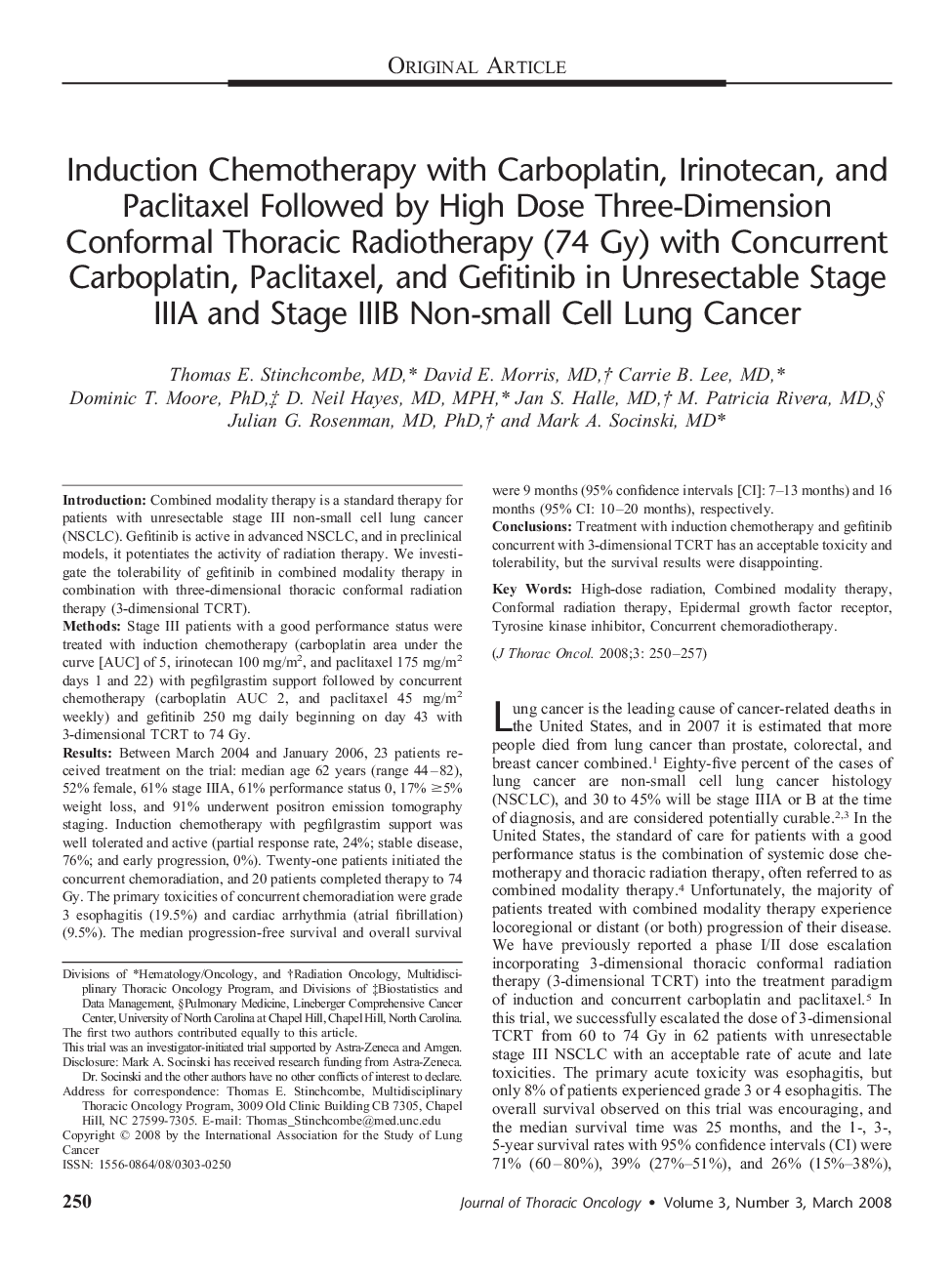| Article ID | Journal | Published Year | Pages | File Type |
|---|---|---|---|---|
| 3991175 | Journal of Thoracic Oncology | 2008 | 8 Pages |
IntroductionCombined modality therapy is a standard therapy for patients with unresectable stage III non-small cell lung cancer (NSCLC). Gefitinib is active in advanced NSCLC, and in preclinical models, it potentiates the activity of radiation therapy. We investigate the tolerability of gefitinib in combined modality therapy in combination with three-dimensional thoracic conformal radiation therapy (3-dimensional TCRT).MethodsStage III patients with a good performance status were treated with induction chemotherapy (carboplatin area under the curve [AUC] of 5, irinotecan 100 mg/m2, and paclitaxel 175 mg/m2 days 1 and 22) with pegfilgrastim support followed by concurrent chemotherapy (carboplatin AUC 2, and paclitaxel 45 mg/m2 weekly) and gefitinib 250 mg daily beginning on day 43 with 3-dimensional TCRT to 74 Gy.ResultsBetween March 2004 and January 2006, 23 patients received treatment on the trial: median age 62 years (range 44–82), 52% female, 61% stage IIIA, 61% performance status 0, 17% ≥5% weight loss, and 91% underwent positron emission tomography staging. Induction chemotherapy with pegfilgrastim support was well tolerated and active (partial response rate, 24%; stable disease, 76%; and early progression, 0%). Twenty-one patients initiated the concurrent chemoradiation, and 20 patients completed therapy to 74 Gy. The primary toxicities of concurrent chemoradiation were grade 3 esophagitis (19.5%) and cardiac arrhythmia (atrial fibrillation) (9.5%). The median progression-free survival and overall survival were 9 months (95% confidence intervals [CI]: 7–13 months) and 16 months (95% CI: 10–20 months), respectively.ConclusionsTreatment with induction chemotherapy and gefitinib concurrent with 3-dimensional TCRT has an acceptable toxicity and tolerability, but the survival results were disappointing.
